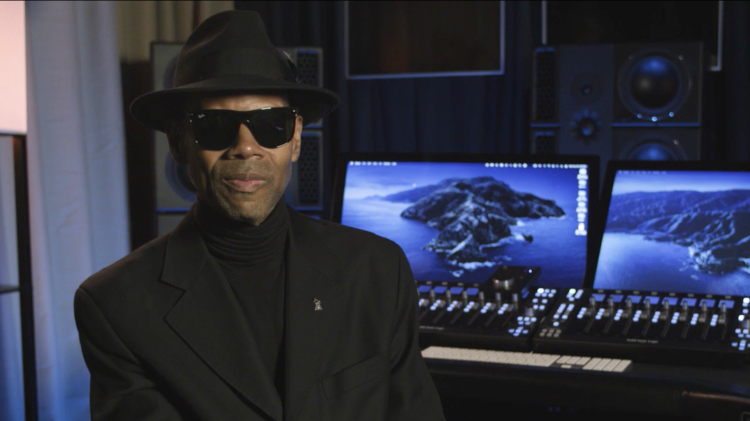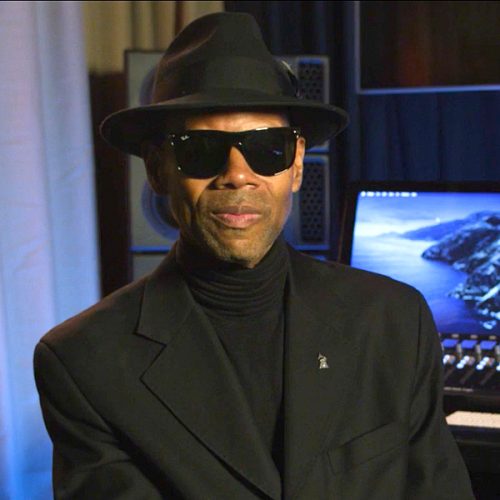Overview
Music Manager: How to Be One & How to Find One
A.K.A.

If you’ve ever wondered what goes on behind the scenes in the music industry, the role of a music manager is a key piece of the puzzle. Music managers are the unsung heroes who work tirelessly to propel artists towards success. From shaping career strategies to handling logistics, they are the driving force behind the scenes. These professionals wear many hats, from overseeing music production to coordinating tours and managing finances.
Discover GRAMMY GO courses exclusively on Coursera
Music managers play a crucial role in guiding artists through the complexities of the music business. They are the ultimate strategists, ensuring that every aspect of an artist’s career is meticulously planned and executed. Whether it’s negotiating deals, organizing performances, or handling day-to-day operations, music managers are the linchpin that holds everything together. In this text, we’ll explore what it takes to be a successful music manager and investigate into the various responsibilities that come with this dynamic role.
What is a Music Manager?
A music manager is a pivotal figure in the music industry who plays a crucial role in shaping the careers of artists. These professionals work tirelessly behind the scenes to guide musicians towards success by overseeing various aspects of their careers. Music managers are responsible for developing career strategies, coordinating music production, organizing tours, managing finances, and handling the overall promotion of artists.
Music managers are essential in exploring the complexities of the music business and acting as strategic partners to artists. They meticulously plan and execute every detail of an artist’s career, ensuring that their clients reach their full potential and achieve success in the industry. As a music manager, you’ll need to possess a diverse skill set, including strong communication abilities, business acumen, and a deep understanding of the music industry world. It’s your role to support and advocate for your clients, working towards their best interests and helping them thrive in a highly competitive industry.
What does a Music Manager do?
Overview of Music Manager Responsibilities
Music managers play a crucial role in the music industry, working closely with artists to help them navigate their careers. Their responsibilities cover a wide range of tasks aimed at supporting the artist’s success. Here’s a breakdown of what music managers actually do:
1. Career Strategy and Planning
Music managers work hand in hand with artists to develop and carry out long-term career strategies. They help artists make decisions that align with their overall career goals and ensure they are on the right path to success.
2. Music Production Oversight
One of the key roles of a music manager is overseeing the music production process. They collaborate with artists, producers, and other team members to ensure the successful creation and release of music projects.
3. Artist Promotion and Marketing
Music managers are responsible for promoting and marketing artists to increase their visibility and reach a broader audience. They work on securing opportunities for performances, interviews, and collaborations to enhance the artist’s presence in the industry.
4. Business and Financial Management
Beyond the creative aspects, music managers also handle the business side of an artist’s career. This includes managing budgets, negotiating contracts, handling taxes, analyzing income and expenses, and ensuring that the artist’s financial affairs are in order.
5. Tour Logistics and Coordination
For artists who go on tour, music managers play a vital role in planning and coordinating all logistics. From booking venues to organizing transportation and managing schedules, tour managers ensure that everything runs smoothly during tours.
6. Crisis Management and Problem-Solving
Music managers need to be adept at handling crises and resolving issues that may arise during an artist’s career. They must be quick thinkers, calm under pressure, and able to make tough decisions when needed.
7. Networking and Industry Relationships
Building and maintaining relationships within the music industry is essential for music managers. They connect with record labels, agents, promoters, and other industry professionals to create opportunities and support their artists’ careers.
8. Artist Development and Support
Above all, music managers serve as advocates and mentors for their artists. They provide guidance, support, and mentorship to help artists grow, develop their craft, and navigate the complexities of the music industry.
By taking on these diverse roles and responsibilities, music managers play a vital role in shaping the careers of artists and helping them achieve success in the competitive music industry.
Music Manager vs Agent
A music manager and an agent both play critical roles in an artist’s career, but they focus on different aspects of the music business. A music manager is a key figure who guides the overall career of an artist or band. They manage day-to-day operations, advise on long-term career decisions, coordinate with other team members like publicists and lawyers, and often have a more personal relationship with the artist. Managers are involved in strategic planning, including setting career goals, planning tours, creating marketing campaigns, and handling relationships with record labels.
An agent, on the other hand, primarily focuses on booking live performances and securing deals related to tours and shows. Agents work with promoters, venues, and festival organizers to arrange live performances and negotiate the terms of these engagements. While managers are responsible for an artist’s overall career trajectory, agents concentrate on live events and the logistics involved in bringing artists to audiences. Thus, while the roles overlap in certain areas, agents usually have a narrower focus on securing live opportunities, while managers oversee broader career planning and execution.
How to Become a Music Manager
Earn a Bachelor’s Degree
To position yourself for a successful career as a music manager, consider earning a bachelor’s degree. While it’s possible to work as a music manager without a college degree, pursuing higher education can provide you with valuable knowledge and skills that are crucial for excelling in this field. A popular choice among aspiring music managers is a degree in business management, as it equips you with essential business practices, negotiation tactics, and music industry expertise. Some universities also offer minors in music management, offering a deeper understanding of the music business world.
Build Professional Experience
Gaining real-world experience is essential for aspiring music managers. Consider interning at music agencies, record labels, or artist management firms to get a firsthand look at the industry. This experience not only allows you to understand the day-to-day operations of managing artists but also helps you build a network of industry contacts. Also, working in entry-level roles related to music management can provide valuable insights and pave the way for a successful career in the field.
Make Connections in the Music Industry
Networking plays a crucial role in the music industry, and as a music manager, it’s vital to establish connections with industry professionals, artists, and other stakeholders. Attending music industry events, conferences, and workshops can help you meet key players in the industry and expand your professional network. Building strong relationships with artists, record label executives, agents, and other managers can open doors to exciting opportunities and collaborations.
Find Artists to Represent
To kickstart your career as a music manager, you’ll need to find artists to represent. Look for talented musicians or bands who align with your vision and values. Building a roster of artists with diverse talents and genres can showcase your versatility and appeal to a broader audience. Remember successful artist-manager relationships are built on mutual trust, respect, and a shared passion for music. Collaborating with artists who value your expertise and guidance can lead to long-term partnerships and career growth.
Join an Association
Consider joining professional associations or organizations in the music industry to stay updated on trends, network with industry professionals, and access valuable resources. Organizations like the Music Managers Forum (MMF) and the International Music Managers Forum (IMMF) offer support, training, and networking opportunities for music managers. Being part of these associations can help you stay informed about industry developments, learn from experienced professionals, and further your career as a successful music manager.
By following these steps and investing in your education, experience, networking, artist representation, and industry connections, you can pave the way for a rewarding career as a music manager. Stay committed to your passion for music, continuously learn and grow in the field, and seize every opportunity to make a positive impact on the artists you represent.
What Skills do Music Managers Need?
To excel as a music manager in the dynamic music industry, you must possess a diverse skill set that can navigate the intricacies of artist management successfully. Here are essential skills that music managers need to thrive in their role:
- Understanding of the Industry: Being well-versed in the music industry world is crucial. You should have in-depth knowledge of music trends, emerging artists, industry dynamics, and current market scenarios to make informed decisions.
- Effective Communication: Communication is key in the music management area. You need to articulate your ideas clearly, negotiate contracts, maintain relationships with industry contacts, and advocate for your artists effectively.
- Strategic Planning: A music manager must be a strategic thinker. Developing long-term career strategies for artists, setting achievable goals, and creating actionable plans to enhance their success are vital aspects of the role.
- Networking Skills: Building a robust network is essential for a music manager. Establishing connections with record labels, promoters, producers, and other industry professionals can open doors for opportunities and collaborations for your artists.
- Organizational Abilities: The ability to juggle multiple tasks and stay organized is paramount. Music managers are responsible for handling artist schedules, bookings, promotional activities, and financial matters, requiring strong organizational skills.
- Problem-Solving Skills: In a rapid industry like music, challenges are inevitable. A competent music manager must possess strong problem-solving abilities to navigate crises, resolve conflicts, and make quick decisions in the best interest of their artists.
- Attention to Detail: Paying attention to the finer details is crucial for a music manager. From contract terms to tour logistics, managing these details meticulously can prevent potential setbacks and ensure seamless operations for the artists.
- Negotiation Skills: Negotiating deals, contracts, and partnerships is a core aspect of the music management role. Having excellent negotiation skills can help you secure favorable terms for your artists and foster mutually beneficial relationships.
- Financial Management: Understanding financial aspects such as budgeting, royalties, revenue streams, and investment opportunities is essential for effective music management. Sound financial management skills can drive the financial success of your artists’ careers.
By honing these essential skills, you can position yourself as a competent and successful music manager capable of guiding artists to achieve their full potential in the competitive music industry.
Average Salary for a Music Manager
If you’re considering a career as a music manager, one crucial aspect to explore is the average salary you can expect in this profession. Music managers play a vital role in the success of artists in the music industry. Understanding the compensation structure for this role can help you prepare for a career in music management.
The average salary for a music manager can vary based on factors such as experience, location, industry connections, and the success of the artists they represent. Entry-level music managers may start with a lower salary, while seasoned professionals with established artists can earn substantially higher incomes.
$58K
AVG

According to data from ZipRecruiter and Glassdoor, the median annual salary for music managers in the United States is around $58,000, with that number nearly doubling to $107,000 for music managers working in NYC. But, top music managers working with high-profile artists can earn well over $150,000 per year. Also, some music managers negotiate for a percentage of their artists’ earnings, which can lead to significant income if the artist achieves commercial success.
It’s important to note that the salary of a music manager is not solely based on a fixed annual amount but also includes commissions, bonuses, and other incentives tied to the success of the artists they represent. As you progress in your music management career and build a strong roster of successful artists, your income potential as a music manager can increase significantly.
Famous Music Managers
In the music industry, famous music managers play a crucial role in shaping the careers of artists and elevating their success. These seasoned professionals are known for their strategic vision, strong negotiation skills, and unmatched industry connections that help propel artists to the heights of their careers.
- Scooter Braun: Known for discovering and guiding the career of global superstar Justin Bieber, Scooter Braun is a prominent figure in the music management world. His strategic approach and knack for identifying talent have made him a force to be reckoned with.
- Shep Gordon: With a career spanning over five decades, Shep Gordon has managed iconic artists like Alice Cooper and Blondie. His legendary status in the industry is a testament to his unparalleled managerial skills and lasting impact on the music scene.
- Jonathan Dickins: As the manager behind multiple Grammy-winning artist Adele, Jonathan Dickins is celebrated for his meticulous attention to detail and unwavering dedication to his clients’ success. His strategic guidance has been instrumental in shaping Adele’s record-breaking career.
Famous music managers serve as inspirational figures in the industry, showcasing the transformative power of effective artist management. Their success stories underscore the immense impact a skilled and dedicated manager can have on an artist’s career trajectory.

Key Characteristics of Famous Music Managers
- Strategic Vision: Renowned music managers are adept at developing and implementing strategic plans that align with the artists’ goals and aspirations. Their ability to see the bigger picture and navigate the complexities of the industry sets them apart.
- Negotiation Prowess: Famous music managers excel in negotiating favorable contracts with record labels, agents, and other industry professionals on behalf of their artists. Their skill in securing advantageous terms is instrumental in the artists’ long-term success.
- Industry Connections: These managers boast extensive networks within the music industry, allowing them to open doors to various opportunities for their artists. Their connections pave the way for collaborations, endorsements, and high-profile appearances.
- Promotional Expertise: Renowned music managers are experts in orchestrating successful promotional campaigns to enhance their artists’ visibility. From press releases to marketing efforts, they know how to create buzz and reach new audiences effectively.
Do I Need a Music Manager?
Let’s switch to the artist’s perspective for a moment (GRAMMY Go is intended to educate everyone in the music business, both in front of and behind the microphone). For an artist, considering whether or not you need a music manager is a crucial decision in your music career journey. The necessity of having a music manager depends on various factors, particularly the stage of your career and your organizational skills.
Assess Your Career Stage
Assessing the current stage of your music career is essential in determining the need for a music manager. If you’re just starting out and have relatively simple organizational needs, you might be able to handle the tasks typically managed by a music manager on your own. But, as your music gains traction and opportunities start pouring in, managing everything by yourself could become overwhelming.
Evaluate Your Organizational Skills
Your organizational skills play a significant role in deciding whether you need a music manager. If you excel in managing your schedule, handling negotiations, and juggling multiple tasks efficiently, you might be able to navigate your music career independently for a longer period. On the other hand, if you find yourself struggling to keep up with the demands of your growing music career, it might be time to consider bringing a music manager on board to streamline your operations.
Consider Future Growth
While you may not need a music manager at the outset of your music career, it’s important to consider the potential for growth and how your workload could increase as your music becomes more successful. Planning for the future and being prepared for the challenges that come with expanding opportunities can help you make an well-informed choice about whether or not to enlist the help of a music manager.
Finding a Music Manager
When looking to find a music manager to advance your career in the music industry, it’s essential to explore various avenues to locate the right match for your aspirations and goals. Here are some effective strategies to assist you in connecting with a suitable music manager:
Research Online Platforms
Begin your search for a music manager by leveraging online platforms dedicated to connecting artists with industry professionals. Websites like LinkedIn, Music Gateway, and AllMusic provide avenues to explore the profiles of music managers and learn about their expertise and client base. Use these platforms to identify potential managers who align with your musical style and career objectives.
Attend Music Industry Events
Networking plays a crucial role in finding a music manager who resonates with your artistic vision. Attend music industry events, such as music festivals, conferences, and workshops, to connect with industry professionals, including music managers. Engaging in face-to-face interactions at these events can help you build relationships and showcase your talent to potential managers.
Seek Recommendations from Peers
Reach out to fellow musicians, producers, or industry contacts for recommendations on reputable music managers. Personal referrals often lead to fruitful connections as they come from trusted sources within the music community. Ask for insights on their experiences with music managers and gain valuable recommendations based on their professional relationships.
Collaborate with Emerging Artists
Collaborating with emerging artists who already have music managers can open doors to new opportunities. By working with artists who are represented by managers, you can gain insights into the managerial process and potentially receive recommendations from these managers based on your collaborative work.
Approach Music Management Companies
Directly contacting music management companies in your area or genre of music can also be a proactive approach to finding a music manager. Research different agencies, review their client roster, and reach out to inquire about their representation process. Demonstrating your commitment and professionalism can enhance your chances of securing a meeting with a music manager within the company.
By exploring these avenues and actively engaging in your search for a music manager, you can increase the likelihood of finding a professional who can elevate your music career to new heights. Be persistent, proactive, and prepared to showcase your talent and dedication to attract the right music manager for your artistic journey.
How to Get Noticed by a Music Manager?
To capture the attention of a music manager and kickstart your music career, you need to stand out in a crowded industry. Here are some strategic steps you can take to get noticed:
Attend Live Shows Regularly
Immerse yourself in the music scene by attending live shows consistently. Music managers often scout for new talent at live performances. Whether it’s at a small local venue or a larger concert, showcasing your talent in a live setting can attract the right attention.
Build a Strong Online Presence
In modern digital era, having a strong online presence is crucial. Create professional profiles on social media platforms and music streaming services. Share your music, engage with followers, and showcase your unique style to appeal to music managers searching for fresh talent.
Network with Industry Professionals
Networking is key to getting noticed by music managers. Attend music industry events, conferences, and workshops to connect with industry professionals. Building relationships with other musicians, producers, and managers can open doors to opportunities and increase your visibility.
Create High-Quality Demo Material
Invest time and effort in producing high-quality demo material that reflects your musical style and capabilities. Whether it’s a demo recording, music video, or an EPK (Electronic Press Kit), having professional and polished materials can leave a lasting impression on music managers.
Collaborate with Emerging Artists
Collaborating with other emerging artists can expand your reach and introduce you to new audiences. Music managers are drawn to artists who are proactive in collaborating and creating innovative music projects. Join forces with like-minded musicians to create buzz and attract attention.
By implementing these strategies, you can enhance your chances of getting noticed by a music manager and taking your music career to new heights. Keep honing your craft, staying informed about industry trends, and putting yourself out there to attract the right opportunities.
Frequently Asked Questions
What is the role of music managers in the industry?
Music managers play a vital role in an artist’s career, handling day-to-day tasks, negotiations, and strategic planning to help artists succeed. They provide guidance, support, and connections to advance their clients in the music industry.
How much do music managers typically earn?
Music managers’ salaries can vary widely depending on the artist’s level of success, experience, and negotiated terms. Generally, managers earn a percentage of the artist’s gross revenue, commonly ranging from 15% to 20%.
Are specific traits essential for successful music managers?
Successful music managers typically possess key traits such as strong industry knowledge, excellent communication skills, strategic thinking, a vast network of contacts, and a deep understanding of their clients’ goals and aspirations.
How can artists attract the attention of music managers?
Artists can attract music managers by attending live shows, building a strong online presence on social media and music platforms, networking at industry events, creating high-quality demo materials, and collaborating with emerging artists to showcase their talent and dedication.
Is it necessary for artists to engage a music manager?
Engaging a music manager is not always necessary, especially for artists in the early stages of their careers. With the rise of social media and music streaming platforms, artists can handle many managerial tasks independently until they reach a point where professional management becomes necessary fo























